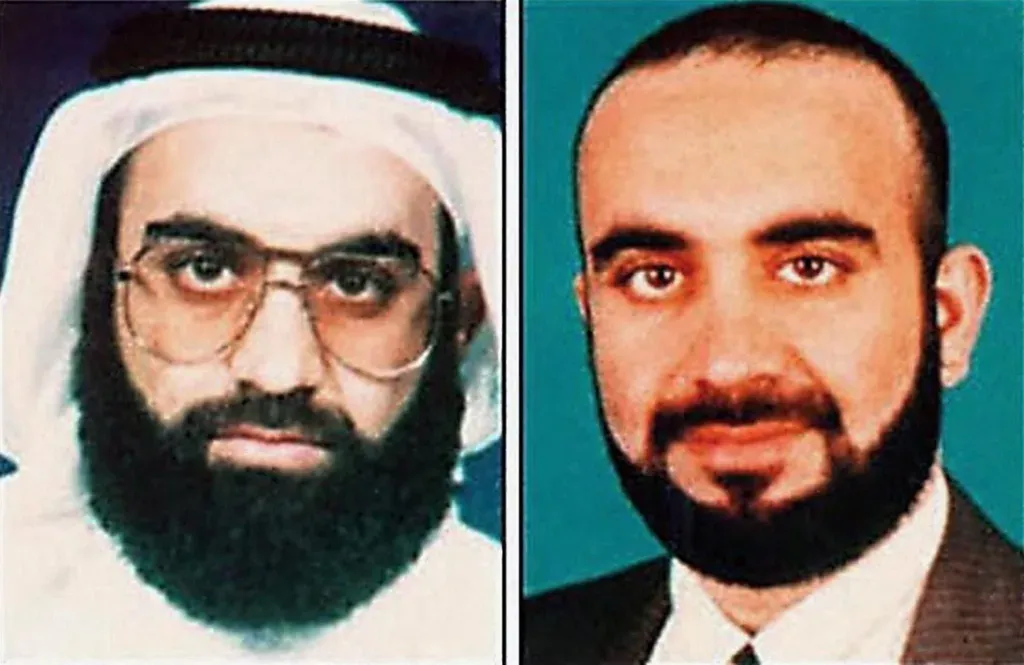Introduction
In a dramatic turn of events, U.S. Defense Secretary Lloyd Austin has rescinded a controversial pre-trial plea agreement with the men accused of orchestrating the September 11, 2001 terrorist attacks. This move has reignited the debate surrounding the legal proceedings of the alleged perpetrators of one of the most catastrophic events in American history. This article provides a comprehensive analysis of the implications of this decision, the individuals involved, and the broader impact on the families affected by the 9/11 attacks.
The Plea Deal Controversy
Background of the Plea Deal
On a recent Friday, Secretary Austin issued a memo that not only annulled the pre-trial plea agreements but also revoked the authority of Brigadier General Susan Escallier, who had signed the agreements earlier in the week. The plea deal, which would have reportedly spared the accused from facing the death penalty, had been met with considerable criticism from families of the victims of the 9/11 attacks.
The September 11 attacks, which targeted New York City, Virginia, and Pennsylvania, resulted in the deaths of nearly 3,000 individuals and were the deadliest assault on U.S. soil since the 1941 Japanese attack on Pearl Harbor. The aftermath of these attacks led to the initiation of the “War on Terror” and subsequent invasions of Afghanistan and Iraq. The decision to strike a plea deal with the accused has been viewed by many as a significant and contentious issue, given the gravity of the crimes committed.
The Revocation of the Deal
In his memo, Secretary Austin emphasized that the decision to enter into pre-trial agreements was of profound significance and thus required his direct oversight. By revoking Brigadier General Escallier’s authority, Austin asserted that such a crucial decision should be managed at the highest level of authority. The memo specifically listed five defendants, including Khalid Sheikh Mohammed, the alleged mastermind behind the 9/11 attacks, who are currently held at Guantánamo Bay, Cuba.

The initial plea deal had included three of these individuals, but Austin’s decision expanded the scope to encompass the five men currently detained. The revoked agreement had been seen by some as lenient, and its cancellation reflects ongoing tensions and challenges surrounding the legal process for these high-profile detainees.
The Defendants and Their Legal Struggles
Profiles of the Accused
The five men affected by this decision are Khalid Sheikh Mohammed (KSM), Walid Muhammad Salih Mubarak bin Attash, Mustafa Ahmed Adam al-Hawsawi, Ramzi bin al-Shibh, and Ali Abdul Aziz Ali. Each of these individuals has been detained at Guantánamo Bay for an extended period, with their cases marked by complex legal and ethical issues.
- Khalid Sheikh Mohammed (KSM): Often referred to as the mastermind of the 9/11 attacks, KSM was captured in Pakistan in 2003. Allegations against him include orchestrating the hijacking and crashing of planes into the World Trade Center and the Pentagon. His detention has been marked by reports of severe interrogation techniques, including waterboarding, which he underwent 183 times before such practices were officially banned.
- Walid Muhammad Salih Mubarak bin Attash: Also known as Khalid Sheikh Mohammed’s associate, bin Attash is accused of involvement in the 9/11 attacks and the bombing of the USS Cole in Yemen in 2000. This bombing resulted in the deaths of 17 U.S. sailors.
- Mustafa Ahmed Adam al-Hawsawi: An alleged financier of the 9/11 attacks, Hawsawi was detained alongside KSM in 2003. He is accused of providing financial and logistical support to the operatives involved in the attacks.
- Ramzi bin al-Shibh: A Yemeni national, bin al-Shibh is accused of coordinating the 9/11 attacks and had planned to be a hijacker himself. However, he was unable to obtain a U.S. visa.
- Ali Abdul Aziz Ali: KSM’s nephew, Ali is alleged to have provided technical support for the 9/11 operation, including helping with the logistical aspects of the hijackings.
Allegations of Torture and Legal Challenges
All five men have alleged that they were subjected to torture during their detention. KSM’s experiences with waterboarding and other harsh interrogation methods have been a central issue in the legal proceedings. The allegations of torture have complicated the legal process, resulting in more than a decade of pre-trial hearings that have yet to reach a conclusion.
The legal battles have been further complicated by the challenges of addressing these allegations within the framework of U.S. law and international human rights standards. The decision to revoke the plea deal adds another layer to this complex legal scenario.
Reactions from Victims’ Families
Criticism of the Plea Deal
The plea deal, which had reportedly aimed to avoid the death penalty for the accused, was met with strong opposition from families of the 9/11 victims. Brett Eagleson, president of 9/11 Justice, expressed deep concern about the terms of the deal, arguing that it was too lenient given the scale of the atrocities committed.
Terry Strada, chair of the 9/11 Families United group, voiced her approval of the Pentagon’s decision to revoke the plea deal. Strada, who lost her husband Tom in the attacks, emphasized that she believed the death penalty was appropriate for those convicted of such heinous crimes. Her sentiments reflect a broader sentiment among many victims’ families who view the revocation as a step towards achieving justice.
Political and Legal Implications
Political Reactions
The revocation of the plea deal has elicited responses from various political figures and stakeholders. Republicans have largely welcomed the decision, viewing it as a necessary corrective measure. Speaker of the House Mike Johnson praised the reversal, asserting that it was a positive development for the families of the 9/11 victims.
Senator Lindsey Graham also supported the decision, emphasizing that the previous plea deal would have sent a detrimental message to terrorists worldwide. The decision to revoke the deal has been framed as an exercise in good judgment and a reaffirmation of the commitment to delivering justice for the victims.
Legal and Ethical Considerations
The legal and ethical dimensions of the plea deal and its revocation are complex. The plea deal’s cancellation underscores the ongoing debates about the treatment of detainees and the balance between national security and human rights. The issues of torture, due process, and fair treatment remain central to the discourse surrounding the 9/11 trials.
The revocation of the plea deal raises questions about the future of these high-profile cases and the potential for prolonged legal proceedings. As the legal process continues, it is essential to consider both the need for justice and the adherence to legal and ethical standards.
Conclusion
The decision to revoke the plea deal with the accused 9/11 plotters marks a significant moment in the ongoing efforts to address the aftermath of the September 11 attacks. This development reflects the complex interplay of legal, political, and personal dimensions that define the broader quest for justice. As the legal process moves forward, it remains to be seen how these developments will impact the families of the victims and the broader discourse on terrorism and justice.
For further updates and detailed coverage on the legal proceedings related to the 9/11 attacks, please refer to the original news source here.
For more information on U.S. political developments and legal affairs, visit our US & Canada section here.


